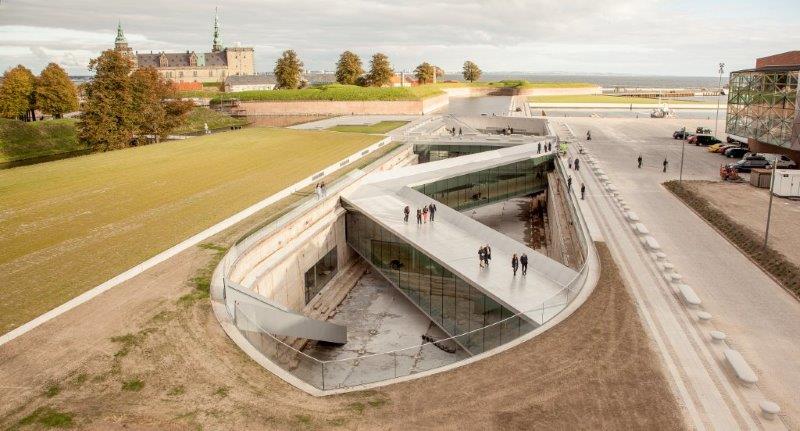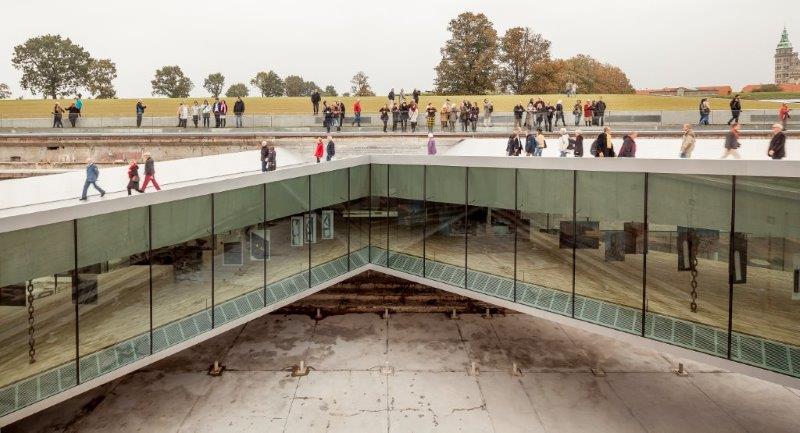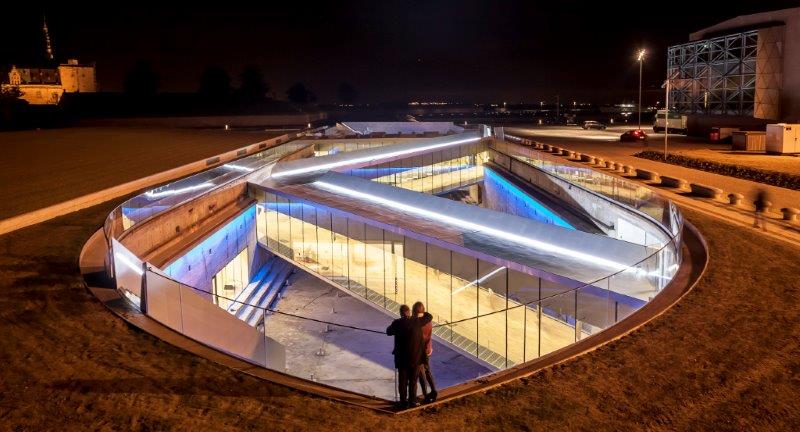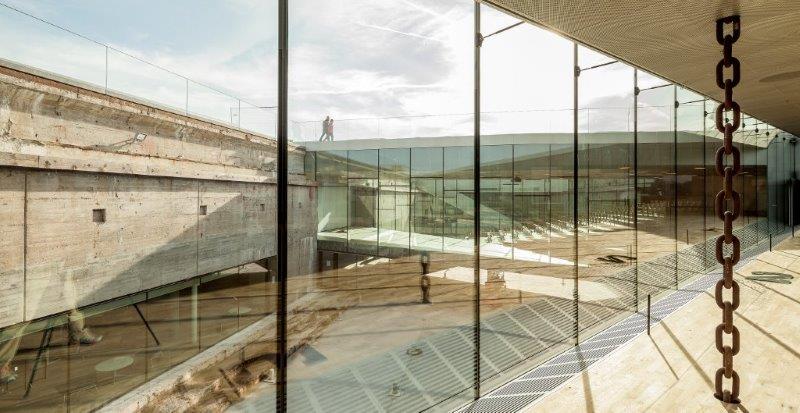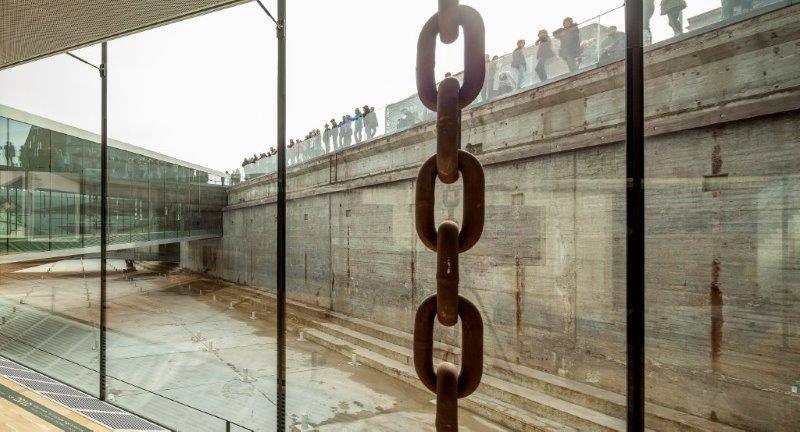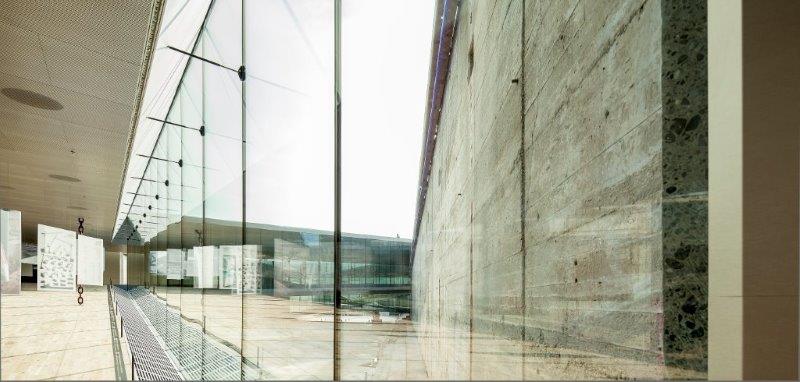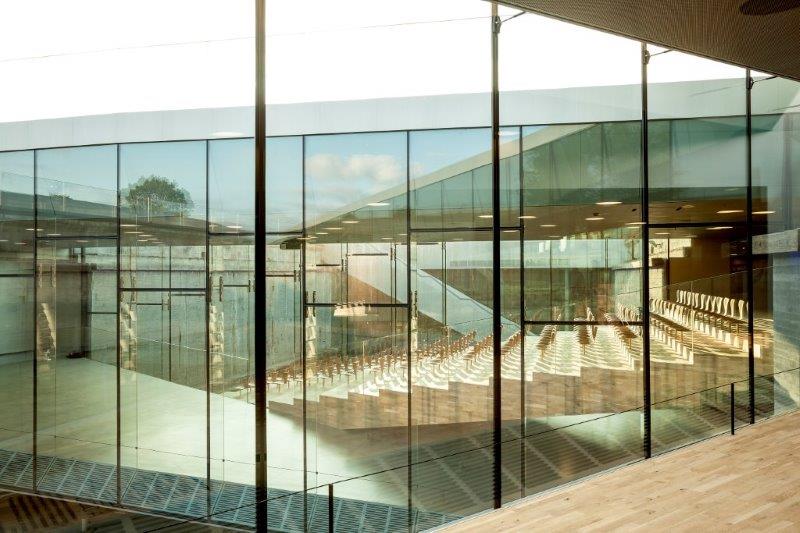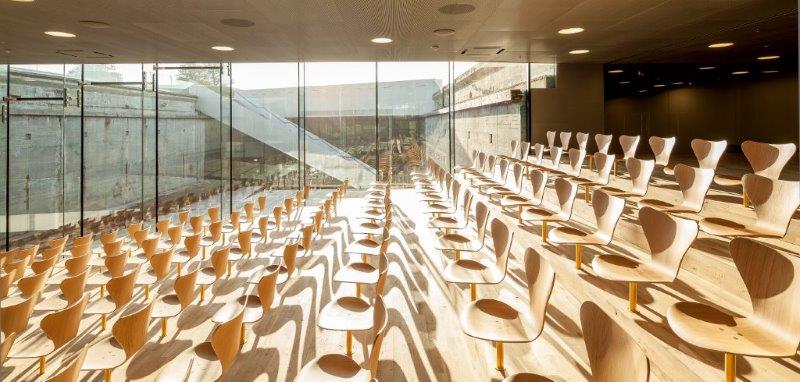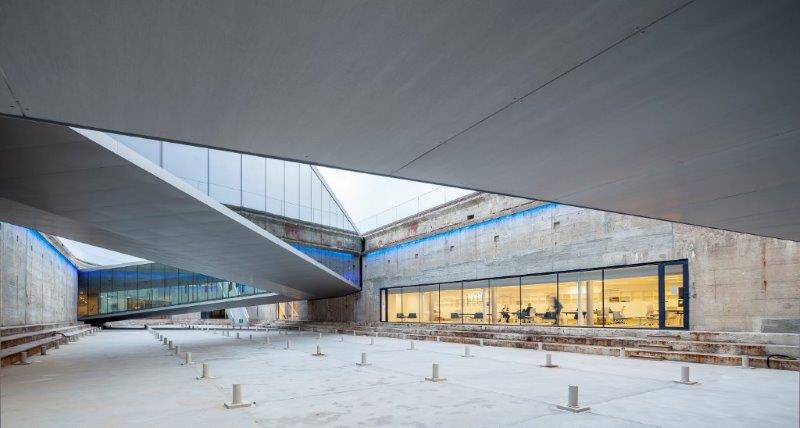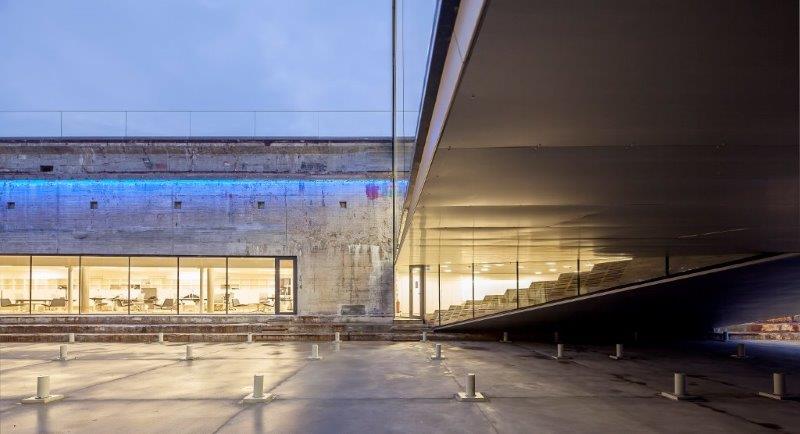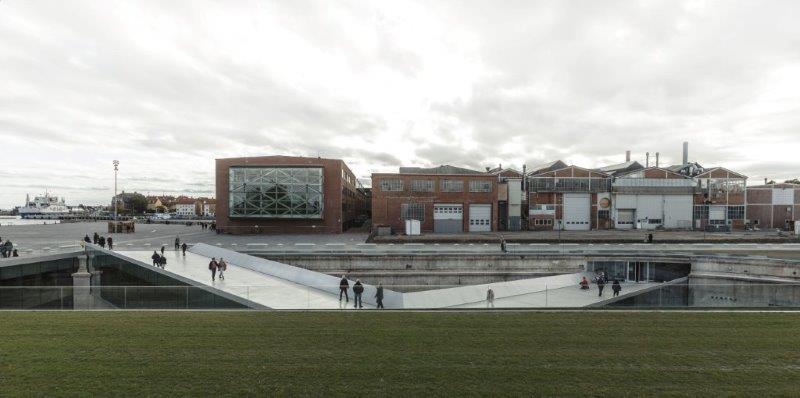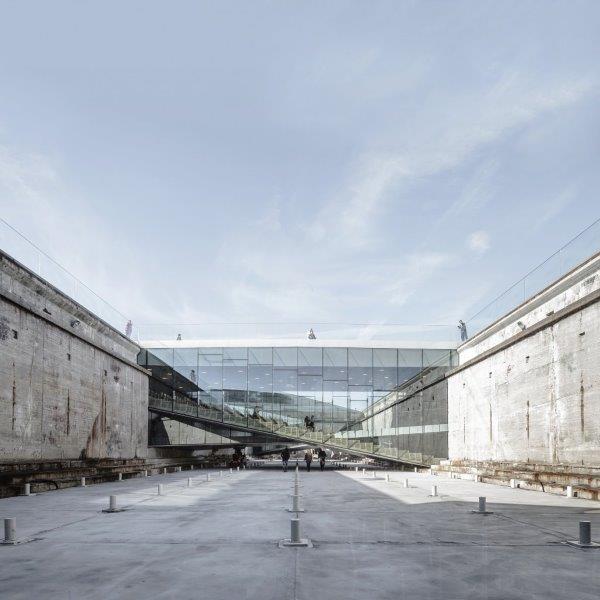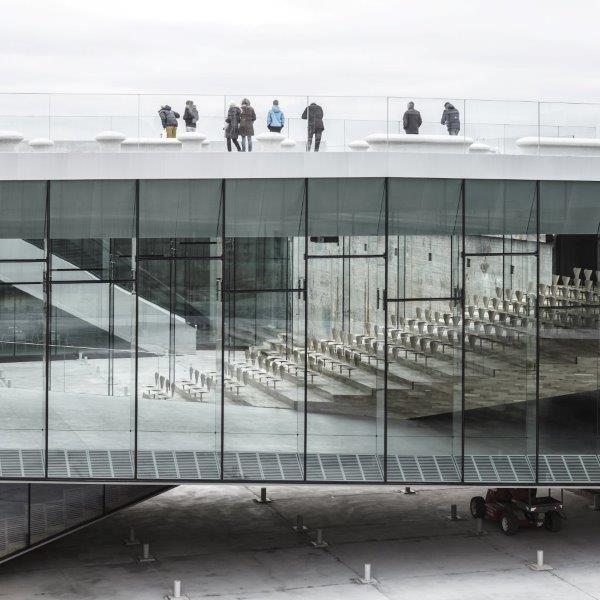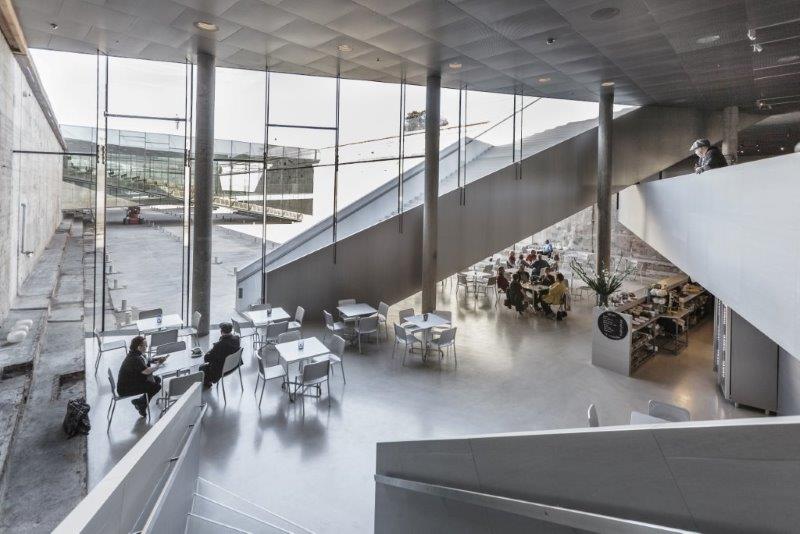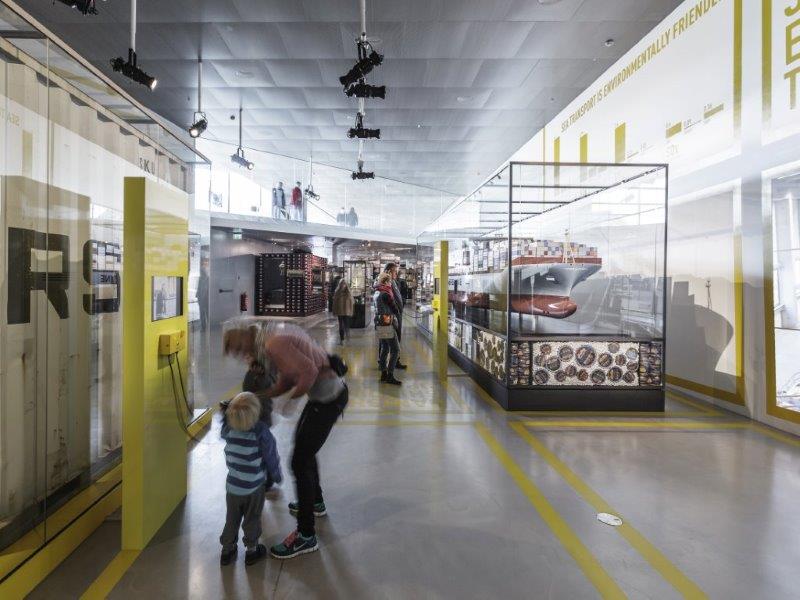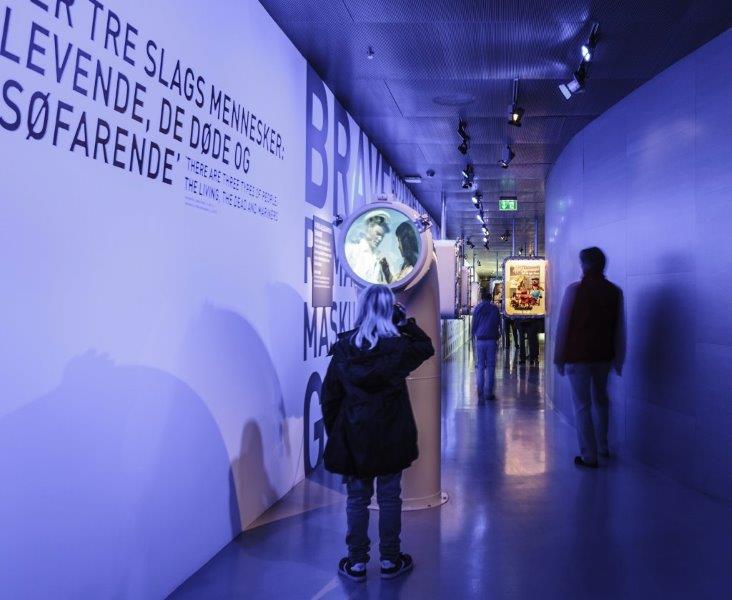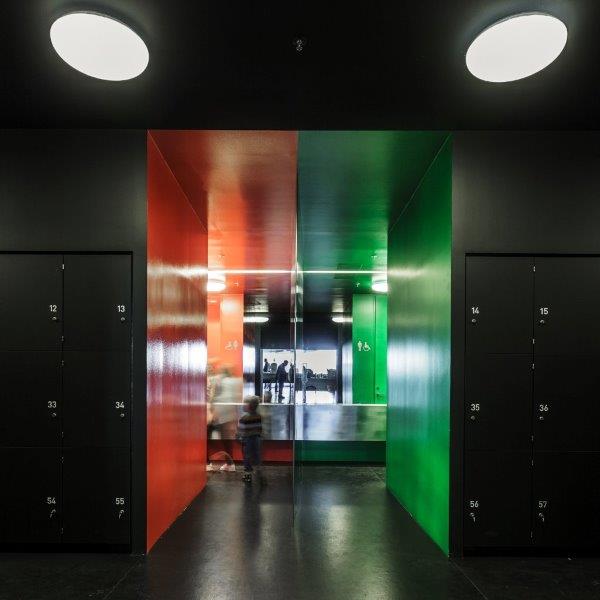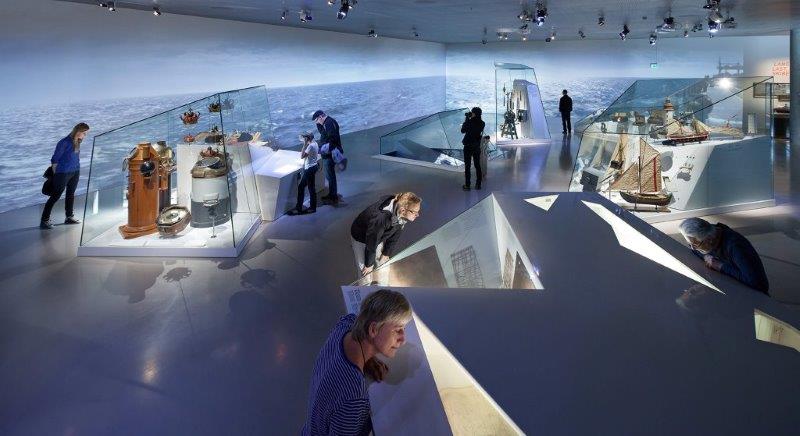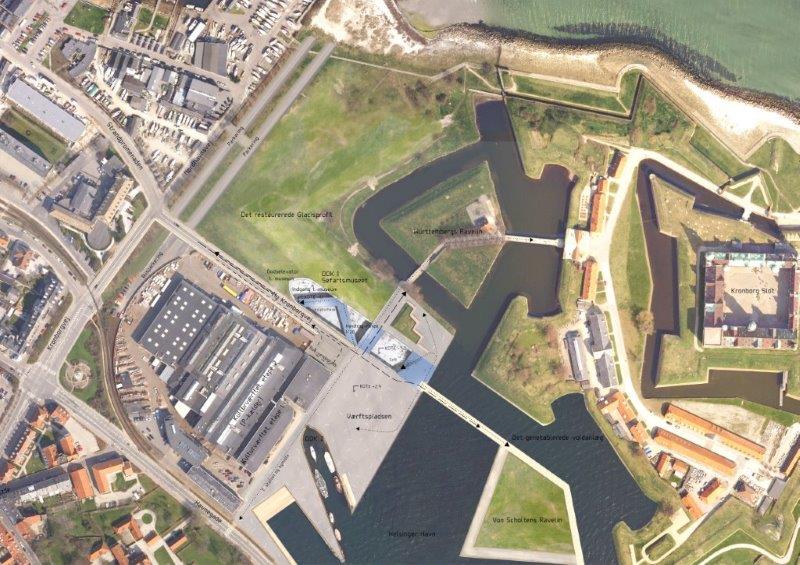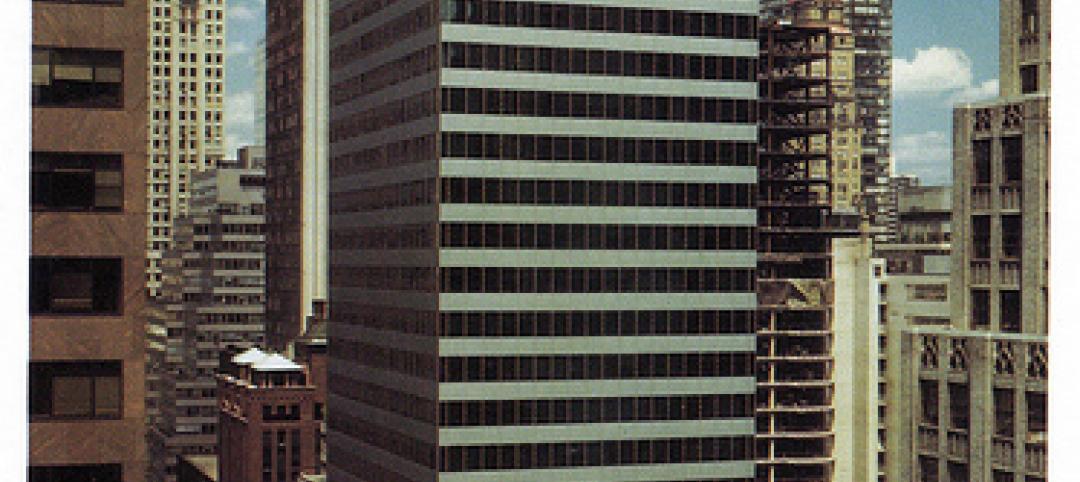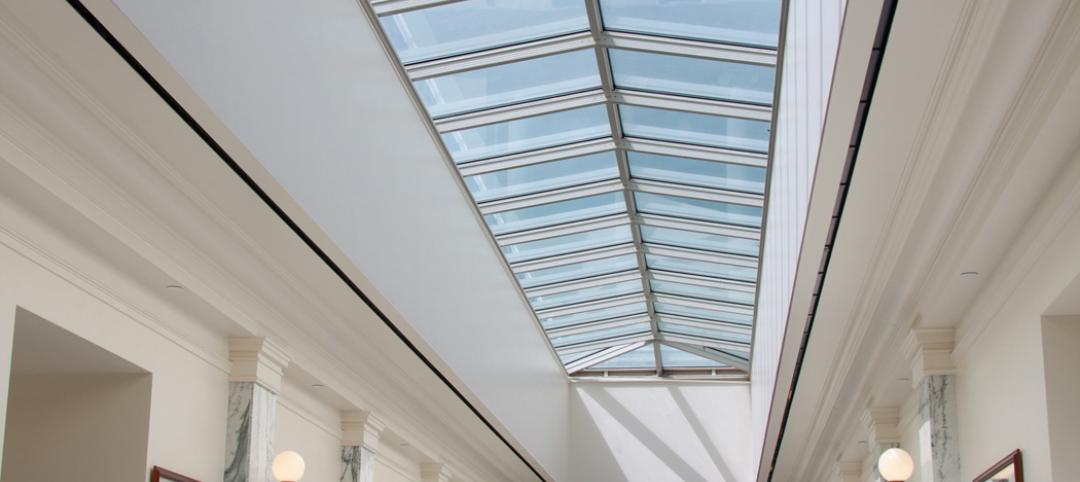BIG (Bjarke Ingels Group) with Kossmann.dejong+Rambøll+Freddy Madsen+KiBiSi have completed the Danish National Maritime Museum in Helsingør. By marrying the crucial historic elements with an innovative concept of galleries and way-finding, BIG’s renovation scheme reflects Denmark's historical and contemporary role as one of the world's leading maritime nations.
The new 65,000-sf museum finds itself in a unique historical context adjacent to one of Denmark’s most important buildings, Kronborg Castle, a UNESCO World Heritage site - known from Shakespeare’s Hamlet. It is the last addition to Kulturhavn Kronborg, a joint effort involving the renovation of the Castle and two new buildings – offering a variety of culture experiences to residents and visitors to Helsingør.
Leaving the 60-year-old dock walls untouched, the galleries are placed below ground and arranged in a continuous loop around the dry dock walls-making the dock the centerpiece of the exhibition-an open, outdoor area where visitors experience the scale of ship building.
A series of three double-level bridges span the dry dock, serving both as an urban connection, as well as providing visitors with short cuts to different sections of the museum. The harbor bridge closes off the dock while serving as harbor promenade; the museum’s auditorium serves as a bridge connecting the adjacent Culture Yard with the Kronborg Castle; and the sloping zig-zag bridge navigates visitors to the main entrance. This bridge unites the old and new as the visitors descend into the museum space overlooking the majestic surroundings above and below ground.
The long and noble history of the Danish Maritime unfolds in a continuous motion within and around the dock, 23 feet below the ground. All floors-connecting exhibition spaces with the auditorium, classroom, offices, café and the dock floor within the museum-slope gently creating exciting and sculptural spaces.
“By wrapping the old dock with the museum program we simultaneously preserve the heritage structure while transforming it to a courtyard bringing daylight and air in to the heart of the submerged museum," said Bjarke Ingels, BIG's Founder. "Turning the dock inside out resolved a big dilemma: Out of respect for Hamlet’s Castle we needed to remain completely invisible and underground, but to be able to attract visitors we needed a strong public presence. Leaving the dock as an urban abyss provides the museum with an interior façade facing the void and at the same time offers the citizens of Helsingør a new public space sunken (16 feet) below the level of the sea.”
KiBiSi designed the above ground bench system. The granite elements were inspired by ship bollards and designed as a constructive barrier that prevents cars from driving over the edge. The system is a soft-shaped bench for social hangout and based on Morse code-dots and dashes writing a hidden message for visitors to crack.
The exhibition was designed by the Dutch exhibition design office Kossmann.dejong. The metaphor that underpins the multimedia exhibition is that of a journey, which starts with an imagining of the universal yearning to discover far away shores and experience adventures at sea. Denmark’s maritime history, up to the current role of the shipping industry globally, is told via a topical approach, including notions such as harbor, navigation, war and trade. The exhibition has been made accessible for a broad audience through the intertwining of many different perspectives on the shipping industry.
"For five years we have been working on transforming the old concrete dock into a modern museum, which required an archaeologist care and spacecraft designer's technical skills," said David Zahle, BIG's Partner-in-Charge on the project. "The old lady is both fragile and tough; the new bridges are light and elegant. Building a museum below sea level has taken construction techniques never used in Denmark before. The old concrete dock with its 1.5-m thick walls and 2.5-m thick floor has been cut open and reassembled as a modern and precise museum facility. The steel bridges were produced in giant sections on a Chinese steel wharf and transported to Denmark on the biggest ship that has ever docked in Helsingør. The steel sections weigh up to 100 tons a piece and are lifted on site by the two largest mobile cranes in northern Europe. I am truly proud of the work our team has carried out on this project and of the final result."
Photos below by Luca Santiago Mora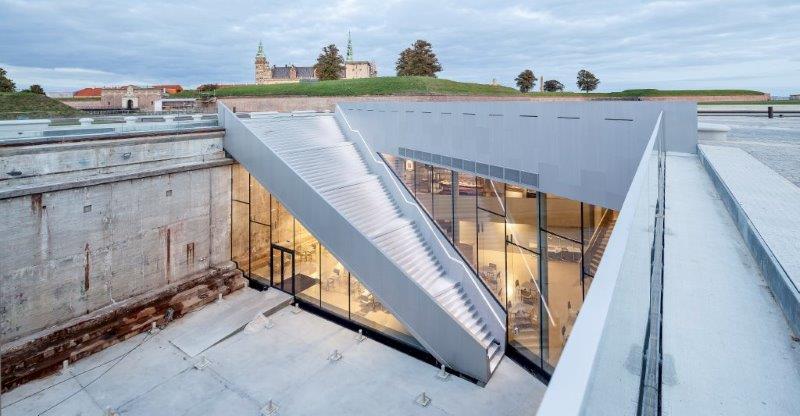
Related Stories
| Jan 16, 2012
Suffolk completes construction on progressive operating suite
5,700 square-foot operating suite to be test bed for next generation of imaged-guided operating techniques.
| Jan 15, 2012
Hollister Construction Services oversees interior office fit-out for Harding Loevner
The work includes constructing open space areas, new conference, trading and training rooms, along with multiple kitchenettes.
| Jan 15, 2012
Smith Consulting Architects designs Flower Hill Promenade expansion in Del Mar, Calif.
The $22 million expansion includes a 75,000-square-foot, two-story retail/office building and a 397-car parking structure, along with parking and circulation improvements and new landscaping throughout.
| Jan 15, 2012
535 Madison Avenue achieves LEED Gold certification
Class-A commercial building meets sustainability requirements of LEED Program.
| Jan 12, 2012
CSHQA receives AIA Northwest & Pacific Region Merit Award for Idaho State Capitol restoration
After a century of service, use, and countless modifications which eroded the historical character of the building and grounds, the restoration brought the 200,000-sf building back to its former grandeur by restoring historical elements, preserving existing materials, and rehabilitating spaces for contemporary uses.
| Jan 12, 2012
Stellar earns construction industry's most prestigious safety award
Now widely accepted as the construction industry's standard measure of safety performance, the STEP awards were established in 1989 to evaluate and improve safety practices and recognize outstanding safety efforts.
| Jan 12, 2012
Building independence: New take on female power
Memoir explores historic engineering project, women's empowerment era.
| Jan 12, 2012
3M takes part in Better Buildings Challenge
As a partner in the challenge, 3M has committed to reduce energy use by 25% in 78 of its plants, encompassing nearly 38 million-sf of building space.
| Jan 11, 2012
DOE announces guide for 50% more energy efficient retail buildings
The 50% AEDG series provides a practical approach for designers and builders of retail stores, and other major commercial building types, to achieve 50% energy savings compared to the building energy code used in many parts of the nation.
| Jan 11, 2012
Mortenson starts construction of Rim Rock Wind Project
Renewable energy contractor to build 189-megawatt wind project in Sunburst, Mont.


